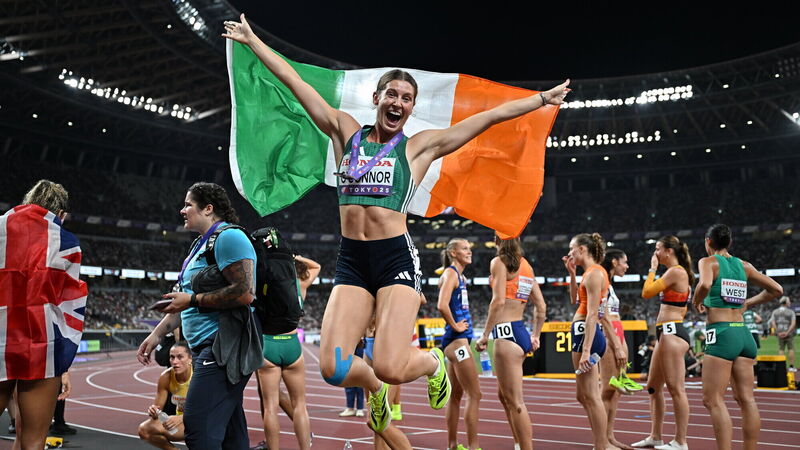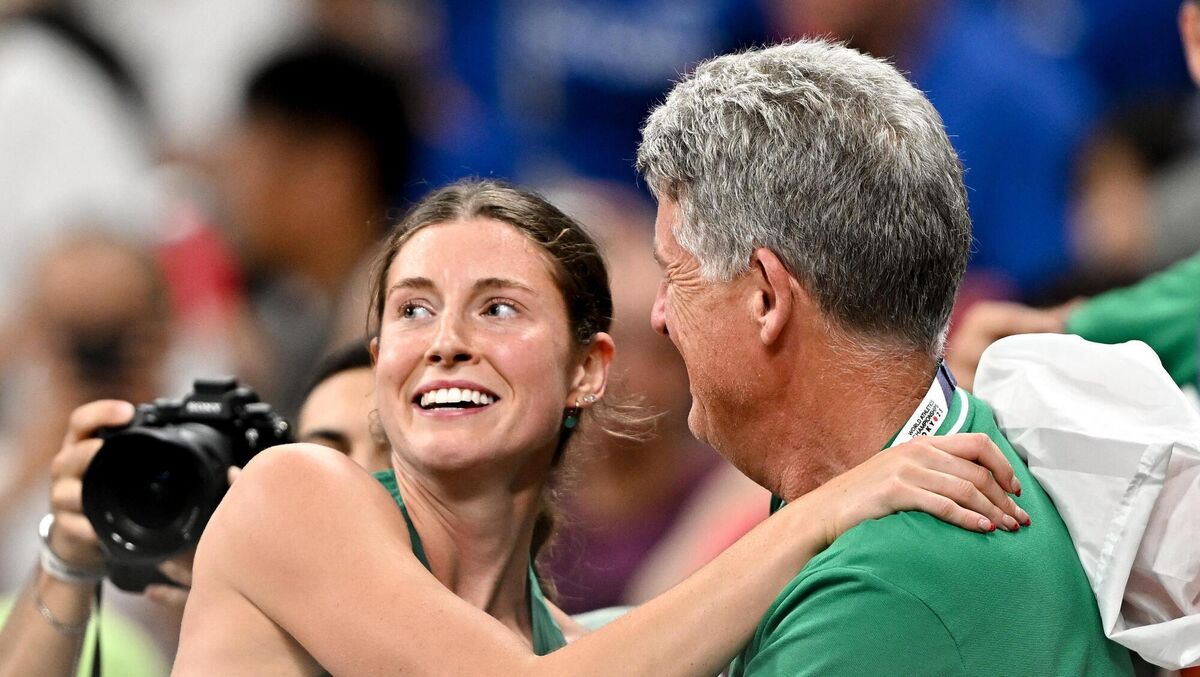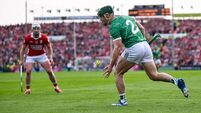Kieran Shannon: Kate O’Connor proves she belongs among the world's best all-rounders

Kate O'Connor of Ireland celebrates after winning silver in the women's heptathlon at the 2025 World Athletics Championships. Pic: Sam Barnes/Sportsfile
That wasn’t just any world medal Kate O’Connor won in Tokyo – because the heptathlon isn’t just any event.
When Jim Thorpe, the remarkable native American multisport star later portrayed in film by Burt Lancaster, won the first-ever Olympic decathlon at the 1912 Games in Stockholm, Sweden’s King Gustav V grabbed his hand, shook it and supposedly declared, “Sir, you are the greatest athlete in the world.”
It was a reasonable claim at the time. Thorpe that same year scored 29 touchdowns playing football for a Division One college before going on to play the sport professionally. His remarkable footwork wasn’t confined to the football field that academic year either; somehow he fitted in the time to skip away with the intercollegiate ballroom dancing championship.
But even if you had been unfamiliar with Thorpe’s prowess on the football field or dancefloor as the Swedish royalty itself most likely was, Stockholm itself was enough to justify his argument. At those Olympics he had won both the pentathlon and the decathlon, the ultimate tests of athletic versatility.
Over a century on and Gustav’s theory still has considerable validity.
The various holders of the Olympic and world championships decathlon gold medals may not be household names like Daley Thompson was in the 1980s when he was hoovering up such honours. You may not know Leo Neugbauer from Germany emerged from Tokyo as the world decathlon champion the way you would know Carlos Alvarez won the US tennis open a fortnight ago. He does not command the media attention or commercial appeal of a top soccer or NBA player.
But by virtue of the event he excels in – or rather the amount of events he is remarkably proficient at – Neugbauer has claim to be one of the world’s supreme male athletes and probably its best all-round.
Much the same can be said of those who made it to the podium in the women’s heptathlon this past weekend in Japan. Some people can sprint but what kind of middle-distance runners are they? Some can jump high but how long? Some people can both run and jump but can they throw? The javelin and the shot?
Kate O’Connor, along with America’s Anna Hall, is at this moment one of the top two women on the planet in an event that is about the best measure you can get of who is that same planet’s most-rounded athlete.
It is an exceptional test of strength, speed, endurance, but more so of mental qualities: nerve, dedication, and also humility.

No one – not even a Thorpe, a pro baseball player as well in his spare time – can knock it out of the park in every event. In some events you’re going to be less proficient than most of the rest of the field. But if you’re to be a heptathlete or decathlete you’ve to try to get stronger at what you’re weaker at while getting even stronger at what you’re strong at.
O’Connor’s endearing and enduring willingness to try everything – discipline, success, failure – has long been one of her hallmarks. When she joined her local athletics club, Dundalk St Gerard’s, when she was about eight, she’d enter everything she possibly could: the 800m, long jump, ball throw. Sometimes she could compete in all of them. Sometimes they clashed and she’d have a reason if she should drop some events and specialise as others tended to do.
Then she saw Jessica Ennis-Hill at the London Olympics. It was what the writer Daniel Coyle would call the ignition moment. “I remember watching her and thinking, ‘Woah, she’s doing what I’m doing – all these random events and going from one place to the next,’” she said. “It was my first moment of ever seeing someone in real life and thinking, ‘This is what I want to do.’
“I loved it. I loved the chaos of the event.” And clearly still does. As well as thrive in it.
Her trajectory this past year has been remarkable. At the Paris Olympics she finished 14th. At the European Indoor championships in March she came third. Now at the world outdoor championships she has finished second.
All this, as she has pointed out, while still being “just a little girl, doing her masters and doing athletics on the side” while most of her competitors are full-time professionals.
At just 24 she has not yet reached her or the sport’s apex. But even if Tokyo is as good as it ever gets, she already joins that remarkable club of Irish world podium athletes coached by her father, as she and her father Michael follow in the tradition of the likes of Michael and Austin Carruth and Katie and Peter Taylor.
And can say – or have it said about them – that for a moment in time at least they were among the greatest athletes in the world.



